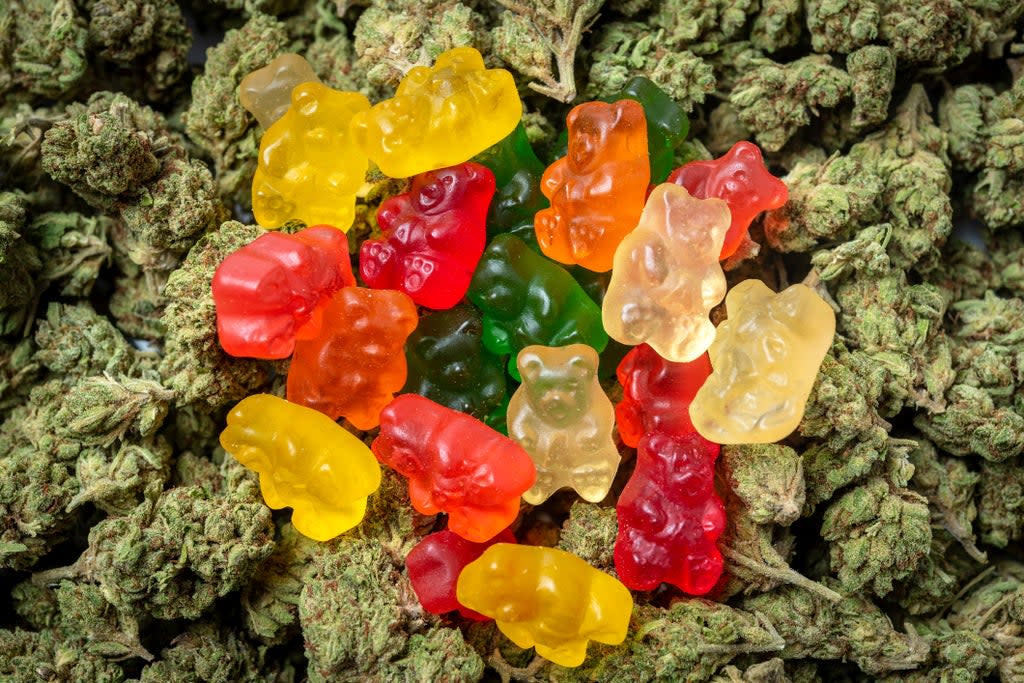NY Attorney General warns parents of candy and snacks in ‘deceptive’ packaging containing ‘dangerously high concentrations of THC’

New York’s attorney general Letitia James has issued an “alert” for parents to keep a lookout for candies and snacks that could contain “high levels of cannabis and tetrahydrocannabinol (THC),” ahead of Halloween.
The “alert” was issued by Ms James on Tuesday with the logic that children could mistake cannabis products to be candy and consume them, leading to “accidental overdoses.”
“New York parents should be on the alert for deceptive cannabis products that look like standard snacks and candy but contain dangerously high concentrations of THC,” Ms James said in a summary of the “alert” in a tweet, along with a press release on Tuesday.
“These products are especially dangerous for our children. We’ve seen an increase in accidental overdoses among children nationwide, and it’s vital that we do everything we can to protect our children,” she added.
New York parents should be on the alert for deceptive cannabis products that look like standard snacks and candy but contain dangerously high concentrations of THC.
Any New Yorker that has encountered these products should contact my office immediately:
1-800-771-7755 pic.twitter.com/dU0Xd2RtNQ— NY AG James (@NewYorkStateAG) October 26, 2021
THC is a psychoactive chemical that is found in cannabis and cannabis products.
The practice of consuming or smoking cannabis has often been wrongfully targeted as being responsible for causing violence among its users.
While cannabis can cause what the US’s Centres for Disease Control (CDC) terms to be a “disorder” among “3 in 10 people who use marijuana”, it also points out that it is highly unlikely for a “fatal overdose” to occur.
Some common effects of consuming cannabis listed by the CDC include extreme confusion, panic and a fast heart rate.
The press release and the tweet by Ms James included pictures of the “deceptive” cannabis products that are lookalikes of popular snack brands Hot Cheeto Puffs, Oreos, Sour Patch Kids and Doritos.
These products were not made by the manufacturers of the original products.
Although New York state legalised adult-use cannabis earlier this year, cannabis products for non-medical purposes are not yet being sold legally in the state.
Ms James’s department said that a standard bag of lookalike Cheetos brand product contains 600 milligrams of THC, which is “120 times the maximum legal adult serving in those states.”
“It is essential that we limit their access to protect our communities and, more specifically, our children. In light of an increase in accidental overdoses among children nationwide,” Ms James said.
Several comments under Ms James’s tweet, however, were critical of her warning and suggested she not buy into “the annual hysteria over ‘deceptive cannabis products that look like standard snacks and candy’.”
“I mean, look, I’m no public health expert, but I’d be willing to bet the majority of ‘THC overdoses’ involving children were because irresponsible parents and grandparents left their stash out where kids could find it, not because somebody offered a kid an edible,” said one user.
I mean, look, I’m no public health expert, but I’d be willing to bet the majority of “THC overdoses” involving children were because irresponsible parents and grandparents left their stash out where kids could find it, not because somebody offered a kid an edible.
— Ron Hogan (@RonHogan) October 26, 2021
“Can you name one instance of a marijuana overdose lol,” said another user.
can you name one instance of a marijuana overdose lol
— beguiling bug (@runolgarun) October 26, 2021
Ford Fischer, an independent journalist, called out Ms James’s warning, saying nobody was “dropping $50 on weed edibles to give them away to unwitting children on the street for free.”
I remember as a kid being *ecstatic* if I came across a home Trick ‘r Treating that had king size candy bars, worth maybe a full dollar each.
Nobody is dropping $50 on weed edibles to give them away to unwitting children on the street for free. https://t.co/1QcZ2XNujP— Ford Fischer (@FordFischer) October 27, 2021
“Children are getting these from their own households by accident, not from strangers giving them away as some kind of super expensive prank,” said another user.
Children are getting these from their own households by accident, not from strangers giving them away as some kind of super expensive prank.
— Urzl Gurzl (@urzl) October 26, 2021
In 2021, the American Association of Poison Control Centres said it received more than 2,622 calls about children ingesting illegal cannabis products.
Read More
Trump Jr says modern US is like communist Czechoslovakia
Ex-Clinton aide Huma Abedin says she was sexually assaulted by US senator
‘Is he embarrassed?’: Biden mocks Youngkin over refusal to campaign with Trump

 Yahoo News
Yahoo News 
